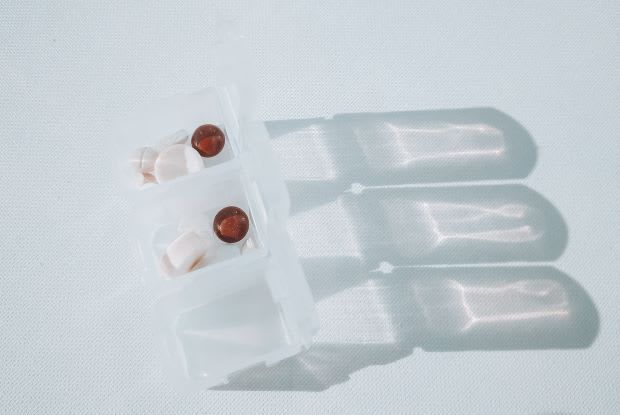Table of Contents
III. Symptoms of Schizophrenia
IV. Understanding Bipolar Disorder
VI. How to Take Antipsychotics Properly
What is an Antipsychotic?
Mental disorders such as schizophrenia and bipolar disorder can cause debilitating symptoms like delusions, hallucinations, and extreme mood swings. If you have these symptoms, you may be prescribed antipsychotic medications, formerly known as neuroleptics. In addition to schizophrenia and bipolar disorder, antipsychotics can be used to treat major depressive disorder (known as depression), Alzheimer’s disease, anxiety disorders, and Tourette syndrome.
Antipsychotic medications work by affecting chemicals in the brain. Depending on the condition, antipsychotic drugs can clear symptoms of confusion within hours or days. However, patients with chronic mental disorders may need to take antipsychotics for up to six weeks to see its full benefits. Antipsychotics are not cures; they aim to help control and manage symptoms when taken over a longer period of time. With proper use, antipsychotic medications can reduce the frequency and severity of psychotic episodes.
If you are thinking about taking antipsychotic medications, speak to your doctor about the possible side effects and benefits of treatment. A good treatment plan will seek to reduce and manage symptoms while minimizing side effects. A good treatment plan may also combine antipsychotic medications like Rexulti (brexpiprazole) and Abilify (aripiprazole) with forms of therapy to improve your quality of life. Read on to learn more about psychotic disorders and how to properly take antipsychotics. [1]
Schizophrenia is a chronic psychotic that can be treated with antipsychotic medications. Without treatment, schizophrenia can cause symptoms like disorganized speech, lack of motivation, trouble thinking, delusions, and hallucinations. Schizophrenia is a complex disease, but researchers are constantly finding new causes by studying genetics with the help of advanced brain imaging technology. There is no cure for schizophrenia. There are many harmful myths when it comes to this brain disorder. For example, many people believe those with schizophrenia are more violent and dangerous than the general population. Some people also associate schizophrenia with homelessness. These are misconceptions; people with schizophrenia are not more dangerous, and most people with schizophrenia live with their families or on their own. This brain disorder affects men and women fairly equally. However, men may experience earlier onset of this disease. Unfortunately, schizophrenia is often accompanied by conditions such as heart disease and diabetes. [2] The severity and duration of schizophrenia symptoms vary from person to person. As a patient gets older, severe psychotic symptoms may decrease. However, alcohol or illicit drug use may increase symptoms. Symptoms of schizophrenia can be categorized into three categories: positive, negative, and disorganized symptoms. Symptoms must persist for a minimum of six months before a full diagnosis can be made. Some of the above symptoms can overlap with symptoms of substance abuse or other psychotic disorders, so your doctor will likely order a thorough medical examination before determining your condition. [2] Bipolar disorder, formerly known as manic depression, involves extreme mood swings. These mood swings involve periods of high emotions (mania) followed by sadness and depression. Like schizophrenia, there is currently no cure for bipolar disorder. However, symptoms of bipolar disorder can be managed and reduced with treatment. If you are diagnosed with this disease, your doctor may recommend psychotherapy in addition to your antipsychotic prescription. Bipolar disorder may be more difficult to diagnose in teens and children, but this disorder may be present if their mood swings are more extreme than normal. [3] As mentioned above, bipolar disorder can cause mania and depression. Mania is characterized by feeling overly happy for long periods. This phase of bipolar disorder often includes being easily distracted, extremely restless, impulsive, and talking very fast. Mania may also cause overconfidence in your abilities, which may lead to risky behavior such as gambling or uninhibited spending. During the manic phase, you may feel like you don’t need to sleep. Depression often follows this phase. The depression phase of bipolar disorder involves feeling hopeless or sad for extended periods. This sadness often causes you to withdraw from friends, family, and activities you used to enjoy. Depression can reduce your appetite and cause fatigue, memory problems, and poor decision-making. During this phase, thoughts about death and suicide may occur. If someone you know is at risk of self-harm, get help and stay with the person until help arrives. If you are feeling excessive sadness and feel overwhelmed by thoughts of suicide, talk to a loved one or call for assistance immediately. [4] Antipsychotic medications can be taken in several ways. The most common way to take these drugs is the oral route, either in tablet or liquid form. Depending on your condition, your doctor may also prescribe regular injections. [5] Antipsychotics like Rexulti and Abilify may be taken with or without food. Generally, you will need to attend regular visits to your doctor to check your progress. Do not take expired antipsychotic medications, and make sure to store your prescriptions at room temperature and away from moisture and heat. Additionally, always consult your doctor before stopping an antipsychotic. Stopping suddenly can lead to adverse symptoms. [6] If you are ready to fill your prescription for your antipsychotic medications, visit Canadian Med Center. By buying your drugs online, you can save time and money. Canadian Med Center sources medicine from reputable pharmacies worldwide, so you can be assured to always get the best price possible. Start managing your psychotic disorder today. The content in this article is intended for informational purposes only. This website does not provide medical advice. In all circumstances, you should always seek the advice of your physician and/or other qualified health professionals(s) for drug, medical condition, or treatment advice. The content provided on this website is not a substitute for professional medical advice, diagnosis, or treatment.
What is Schizophrenia?
Symptoms of Schizophrenia

Understanding Bipolar Disorder
Symptoms

How to Take Antipsychotics Properly
